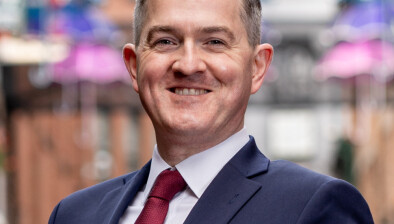NI: Wisconsin is a warning against Northern Ireland legal aid cuts, says Making a Murderer lawyer

Cuts in the provision of legal aid in Northern Ireland will threaten the quality of legal representation for the poorest people in the area, star lawyer Jerry Buting from Making a Murderer has warned.
Connor Beaton, assistant editor of Irish Legal News, spoke to Mr Buting ahead of the European Young Bar Association (EYBA) annual conference in Belfast, where Mr Buting delivered a keynote speech on criminal justice issues.
He has risen to prominence as a former defence lawyer for Steven Avery, the subject of hit Netflix documentary Making a Murderer.
The show documents alleged abuses and misconduct during the investigation and trial of Mr Avery on charges related to the rape and murder of US woman Teresa Halbach in 2005.
Speaking to Irish Legal News on Friday, Mr Buting said there was a “very serious risk” that legal aid cuts could prevent some people from entering or staying in the legal profession.
He said: “America has, for three decades now, cut back repeatedly on funding for indigent defence - legal aid-type programmes - and Wisconsin’s the best example.
“We have a staffed indigent defence programme, state-wide, but only about 60 per cent of cases are handled by those salaried lawyers. The remainder get appointed out to private attorneys on an hourly basis. The hourly basis is $40 an hour. It is now the lowest in the country, worse than the Deep South of America, which has historically been the least generous when it comes to this sort of thing.”
He said the quality of private attorneys willing to take these cases “has definitely gone way down”, with $40 an hour rarely meeting overhead for criminal lawyers.
Mr Buting said this meant “the kinds of people that are able to take those cases tend not to even have an office, they maybe work out of their car with a cell phone”.
He praised the Northern Ireland solicitors and barristers who refused to take on new legal aid cases in protest of new legal aid rules proposed by Justice Minister David Ford.
The long-running dispute was eventually resolved through mediation with the Department of Justice, after a failed bid by the Bar Council of Northern Ireland and the Law Society of Northern Ireland to have the rules overturned by the High Court.
Mr Buting said: “When I started practising law almost 35 years ago, they were paying $45 an hour . Now here it is, 35 years later, and it’s gone down.
“The problem is, of course, there’s no political constituency for citizens accused of crime, and that’s especially so when it’s disproportionately the poor that are represented in the criminal justice system.
“It’s easy for politicians to demagogue and say ‘we’re going to cut this and cut that’, but what’s happened in Wisconsin should be a warning to Northern Ireland and other countries.”
He added: “I do think that not only lawyers but the public has to stand up to these attempts to try to cut the quality of defence for people accused of crimes.”
Mr Buting also encouraged lawyers in Northern Ireland to push for the introduction of cameras in the courtroom.
He said: “Cameras in the courtroom give people, the general public, who are not the insiders who are down in the courtrooms, an opportunity to see what happens in their courtrooms and nobody should be afraid of that, lawyers least of which.
“They should be proud of what happens in their courtrooms and if there are abuses, they should want the public to see them. That’s one little thing I would encourage lawyers in this area to work for.”










